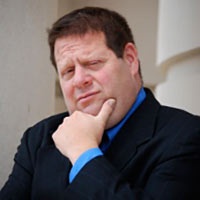Tallman Felony Lawyer, New York
Sponsored Law Firm
-
 x
x

Click For More Info:
-
Cohen & Bernstein, L.L.C.
1360 Clifton Ave #309 Clifton, NJ 07012» view mapCriminal Defense We’re In this Together!
We work hand in hand with our clients to ensure all of your questions are answered and progress through your legal issue is seamless.
800-978-7341
Kevin Conway
✓ VERIFIEDKevin T. Conway is a local criminal attorney practicing in the field of criminal law. Attorney Conway have over 30 years of experience representing cl... (more)
Zev Goldstein
✓ VERIFIEDAttorney Zev Goldstein specializes his practice in handling traffic violations and driving-related crimes such as speeding, DWI/DUI, Aggravated Unlice... (more)
Darren Deurso
✓ VERIFIEDDarren DeUrso has been in practice for 25 years, including years as an assistant district attorney for Westchester County and in the private practice ... (more)
FREE CONSULTATION
CONTACT Lindsay Bernstein Clifton, NJ
Lindsay Bernstein Clifton, NJ Practice AreasExpertise
Practice AreasExpertise




